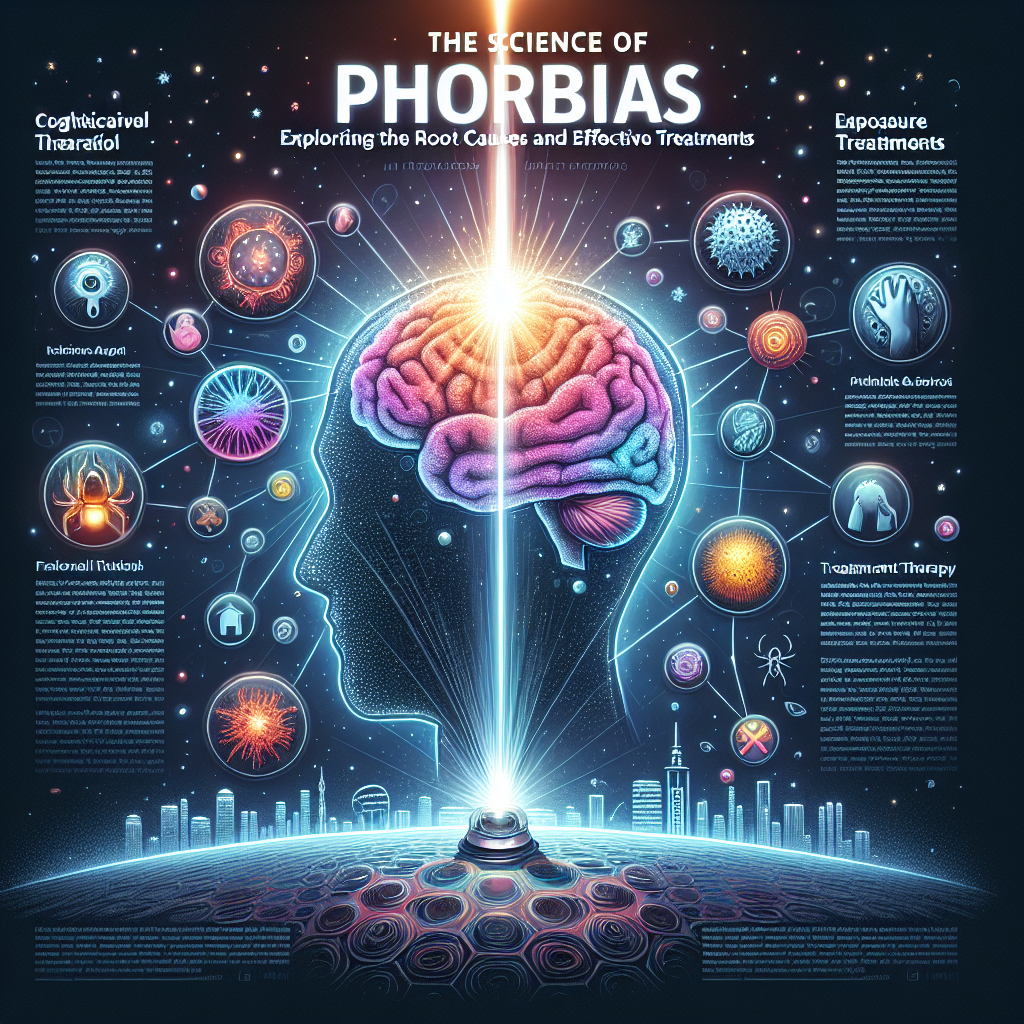Phobias are a common mental health disorder that affects millions of people around the world. These intense and irrational fears can interfere with daily activities and relationships, causing significant distress and anxiety. Understanding the science behind phobias, including their root causes and effective treatments, can help individuals and mental health professionals better manage and overcome these debilitating conditions.
The Root Causes of Phobias
Phobias are believed to be caused by a combination of genetic, environmental, and psychological factors. Some individuals may have a genetic predisposition to developing phobias, as certain phobias tend to run in families. Traumatic experiences, such as being bitten by a dog or witnessing a car accident, can also trigger the development of phobias in some individuals.
Additionally, individuals who have a tendency to be anxious or have low levels of emotional regulation may be more susceptible to developing phobias. Psychological theories suggest that phobias may be a way for individuals to cope with underlying feelings of fear and anxiety, by associating those feelings with specific objects or situations.
The amygdala, a part of the brain responsible for processing emotions, plays a key role in the development of phobias. When a person is exposed to a phobic stimulus, the amygdala sends distress signals to the rest of the brain, triggering the fight-or-flight response. Over time, this can lead to a conditioned fear response, where the individual associates the phobic stimulus with danger, even if the threat is not real.
Effective Treatments for Phobias
There are several evidence-based treatments for phobias that can help individuals manage and overcome their fears. Cognitive-behavioral therapy (CBT) is one of the most common treatments for phobias, as it helps individuals identify and challenge their negative thoughts and beliefs about the phobic stimulus. Through gradual exposure to the feared object or situation, individuals can learn to confront their fears and reduce their anxiety levels.
Exposure therapy is another effective treatment for phobias, where individuals are gradually exposed to the phobic stimulus in a controlled and safe environment. This helps individuals confront their fears and learn to cope with their anxiety responses. Virtual reality exposure therapy is a newer form of treatment that uses virtual reality technology to simulate phobic situations, allowing individuals to confront their fears in a controlled setting.
Medications, such as selective serotonin reuptake inhibitors (SSRIs) and beta-blockers, may also be prescribed to help individuals manage their anxiety symptoms. These medications can help reduce the intensity of anxiety responses and make it easier for individuals to engage in therapy and confront their fears.
FAQs
Q: Can phobias be cured?
A: While phobias may not be completely cured, they can be effectively managed and reduced through therapy and medication. With the right treatment and support, individuals can learn to cope with their fears and lead fulfilling lives.
Q: How long does it take to treat a phobia?
A: The length of treatment for a phobia can vary depending on the individual and the severity of their symptoms. Some individuals may see improvements in a few months, while others may require longer-term therapy to overcome their fears.
Q: Are all phobias irrational?
A: While many phobias are considered irrational, as they involve intense fear of harmless objects or situations, some phobias may have a logical basis. For example, a fear of heights or snakes may stem from evolutionary instincts to avoid danger.
Q: Can phobias develop later in life?
A: Phobias can develop at any age, although they often emerge during childhood or adolescence. Traumatic experiences, major life changes, or genetic predispositions can all contribute to the development of phobias later in life.
In conclusion, understanding the science behind phobias is essential for effective treatment and management of these debilitating conditions. By exploring the root causes of phobias and implementing evidence-based treatments, individuals can learn to cope with their fears and lead happier, healthier lives. If you or someone you know is struggling with a phobia, don’t hesitate to seek help from a mental health professional.




Leave A Comment